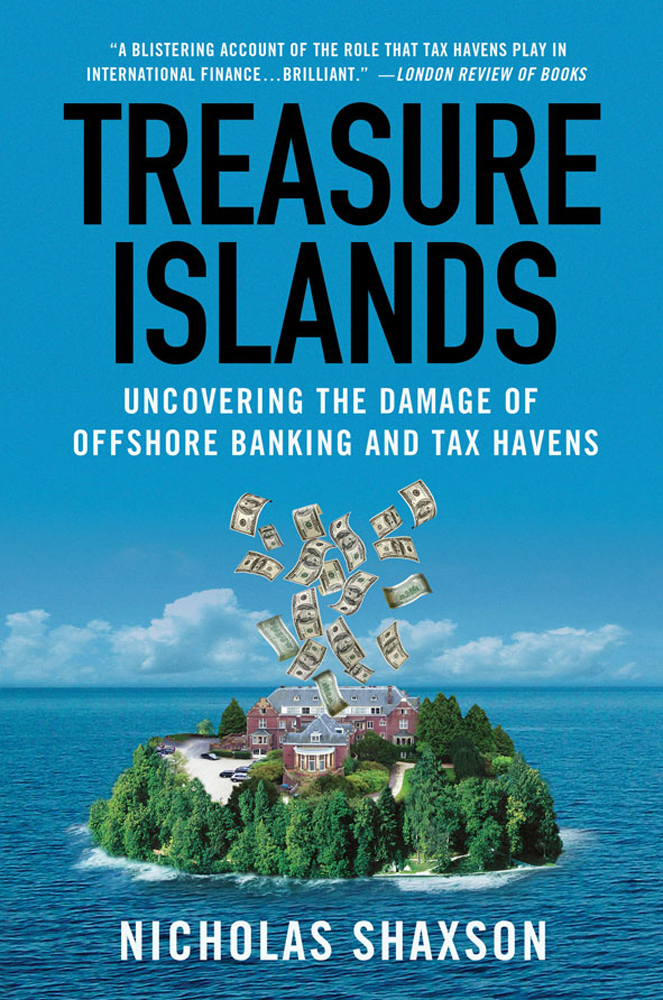Book Review: Treasure Islands
Tax havens exist to lower taxes and regulations on corporations and wealthy individuals. ?But doing this involves significant complicated legal and accounting work. ?The average person could not benefit because the fixed costs are high. ?You need to have a lot of assets to benefit from tax havens.
So why do the wealthy governments of the world tolerate tax havens? ?Why don’t they “use NATO to blockade these places, and tell them to end their tax-avoidance-facilitation policies, or else.” ?Sadly, the wealthy have disproportionate power over politicians, and the majority of politicians are wealthy. ?They like the system as it is. ?You can make the tax code as progressive as you like; you will not end up taxing the intelligent wealthy much more.
This book confronts transfer pricing, where profits get shifted to low-tax countries by clever accountants. ?Very difficult to police.
The is an amusing section in the middle of the book about the City of London Corporation, which has unique rights in the UK. ?It is the home of most financial activity n London, and is mostly unaccountable to the UK.
In general, I believe that taxation should be the same regardless of the structure of the entity being taxed, its location, etc. ?To that end, I think that corporations should be taxed on their global income as expressed to its owners. ?Or, don’t tax corporations, but make all taxation like limited partnerships, and tax the individuals that own them.
There are other possible solutions. ?There can be limits on corporate structure. ?Israel limits subsidiaries such that the depth from the holding company cannot exceed two. ?There could be consolidation and/or non-recognition of ?subsidiaries in tax havens.
Additional Resources
Book website?(those reading at Amazon, come to Aleph Blog to get links)
Quibbles
The book makes its last chapter about how tax havens helped cause the financial crisis, but it makes a very weak case. ?Individuals and Banks overlevered themselves as asset prices rose, creating a bubble — not much different than the 1920s. ?Tax havens played little role, even if they aided securitization in a few ways.
The book argues for capital controls, but those controls often create incentives for greater corruption.
My main problem with the book is that it does not offer any workable solutions to the problems. ?My secondary problem is that the problem is not so much with the tax havens, which we could easily marginalize, but with the politicians, who do not do the hard work of seeing that taxation takes place, regardless of the corporate form or location.
Who would benefit from this book:?You have to be willing to endure complex arguments to benefit from this book.? If you want to, you can buy it here:?Treasure Islands: Uncovering the Damage of Offshore Banking and Tax Havens.
Full disclosure: I borrowed it at my library.
If you enter Amazon through my site, and you buy anything, I get a small commission.? This is my main source of blog revenue.? I prefer this to a ?tip jar? because I want you to get something you want, rather than merely giving me a tip.? Book reviews take time, particularly with the reading, which most book reviewers don?t do in full, and I typically do. (When I don?t, I mention that I scanned the book.? Also, I never use the data that the PR flacks send out.)
Most people buying at Amazon do not enter via a referring website.? Thus Amazon builds an extra 1-3% into the prices to all buyers to compensate for the commissions given to the minority that come through referring sites.? Whether you buy at Amazon directly or enter via my site, your prices don?t change.


